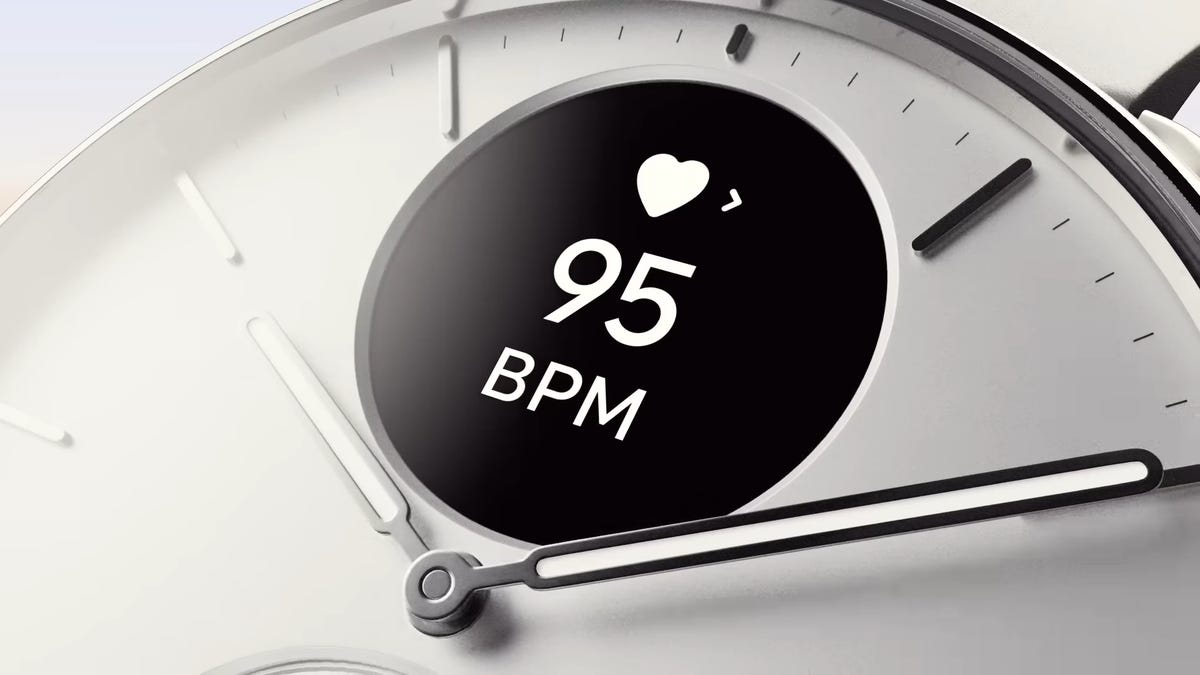The ScanWatch Is a Less Distracting Fitness Tracker - 3 minutes read

There are plenty of ways to take advantage of the different health features offered by technology these days—maybe even too many. Whether you’re looking at dedicated fitness trackers from Fitbit, or planning to get a smartwatch like the Apple Watch Series 9, tracking your fitness journey has become a rather distracting experience.
That’s because modern fitness trackers do way more than track your fitness, bogged down with smart features like notifications for your phone calls, messages, and apps. But if you’re looking to ditch all of that and still get a great fitness tracking experience, then Withings ScanWatches are worth keeping your eye on.
What the ScanWatch tracksThe original Withings ScanWatch was unlike any fitness tracker before it when it came out. At first glance, it looks like a traditional analog watch, but look closer, and you’ll find a small display that feeds you important fitness tracking information without being too distracting.
The ScanWatch 2 takes with it everything that Withings started with the original, but adds one new feature: They combined a heat-flux sensor with a temperature sensor, and then added heart rate and accelerometer inputs to get an overall picture of your body temperature. This “TempTech24/7 Module” can offer baseline variations of your body temperature both at night and during the day, offers temperature zones during workouts, and displays your awake temperature zones, as well as your recovery temperature after workouts.
This sensor is the main difference between the original ScanWatch and the new one: The ScanWatch 2 doesn’t support irregular heart rate notifications, but it does add overnight heart rate variability, cycle monitoring on-watch, and respiratory rate readings. Other than that, the two watches are virtually the same, so either includes the benefits we list below.
Either ScanWatch tracks the usual fitness metrics, such as resting heart rate, average steps, and workouts, but you don’t need to rifle through a ton of other nonsense on this smartwatch. Most of the heavy lifting is handled through ScanWatch’s mobile app, which makes it easy to keep up with every little thing the ScanWatch tracks.
The ScanWatch doesn’t sport a full digital display like traditional smartwatches do. Instead, its analog face is only broken up by a much smaller digital face, which provides all the readouts you need for your different workout-tracking and fitness-tracking needs.
Of course, that means you can expect limited to no access to apps like Spotify, or even notifications, as it’s designed primarily to tell time and track your fitness. If you want to keep up with everything else, a more traditional smartwatch is probably your best bet.
How long does the ScanWatch battery last?Stripping away the extra features, however, comes with some great battery benefits: You’ll be able to use the ScanWatch for an entire 30 days without having to charge it, making it an ideal fitness tracker for people who don’t want to plug their watch in every day.
This is especially important if you plan to take advantage of the various sleep-tracking features available on the ScanWatch, as you obviously can’t track your sleep if you’re charging your watch while snoozing.
If you’re thinking about rocking a new fitness tracker, but want to ditch all the distracting elements of the typical smartwatch, think about picking up a Withings ScanWatch. It’s not the cheapest option on the market by any means, but it has just as much to offer as the bigger, more well-known brands. Its design should please the minimalists who want a more simplistic approach to fitness tracking.
Source: Lifehacker.com
Powered by NewsAPI.org